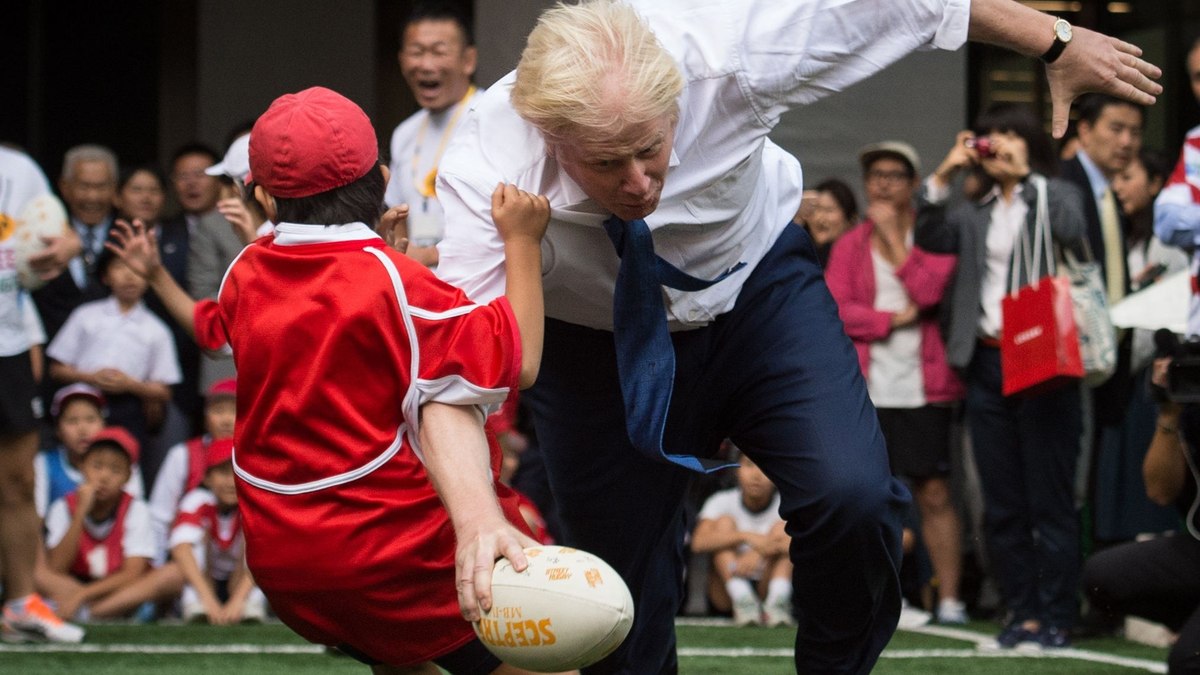The Duke of Wellington (himself an old Etonian) famously quipped that the Battle of Waterloo was won on the playing fields of Eton.
The fact that there were no playing fields at Eton at the time is neither here nor there. The remark has gone down in history because of what it implies: that the self-confidence, risk-taking, physical courage and sheer grit that helped win the battle were learned playing rugby. Now a group of doctors and academics is arguing that school rugby as it is currently played is simply too dangerous and that rugby tackling should be banned until players have become full adults. Are they right?
Rugby, or at least rugby union, used to be the preserve of toffs and their children. Only public schools played the game; the riff-raff made do with a round ball and played soccer. But all that has been changing. The increasing popularity of rugby as a spectator sport, through the six nations championship and the world cup (notwithstanding England’s ignominious early departure last year) has led to more young people wanting to play it. England’s Rugby Football Union is in the middle of a seven-year project to extend the sport into state schools. Four hundred are already enrolled and it’s expected that a further 350 will join them by 2019. The target is for a million more pupils to be playing the game by then.
But this ambition has drawn new attention to the game and whether or not it is too dangerous for youngsters to play, at least in its current form. That is the conclusion of a group of over seventy doctors and academics who have written to ministers, chief medical officers and children’s commissioners to argue that this ‘high-impact collision sport’ causes an unacceptable level of injury among school pupils.
They write that ‘the majority of all injuries occur during contact or collision, such as the tackle and the scrum’. They add: ‘These injuries, which include fractures, ligamentous tears, dislocated shoulders, spinal injuries and head injuries can have short-term, life-long and life-ending consequences for children.’ They argue that there is a link between ‘repeat concussions and cognitive impairment and an association with depression, memory loss and diminished verbal abilities.’
One of the signatories of the letter, Professor Allyson Pollock of Queen Mary University, London, says that evidence collected over twelve years suggests that school rugby players up to the age of eighteen or nineteen have a 28% chance of getting injured over a season of fifteen matches each year. So by simple arithmetic it means that if school rugby-playing is extended to a million new pupils there will be almost 300,000 extra injuries each year, including up to 100,000 cases of concussion. There is also an effect on their education: injuries on the rugby field lead to more than seven days off school in 90% of the cases. The letter makes the point that rugby is compulsory in many schools and that infringes the United Nations convention on the rights of a child.
Rugby’s defenders argue that the rules have been tightened a lot over recent years to minimise injuries – especially tackling and behaviour in the scrum. But they say you can’t get rid off tackling. It’s not only essential to the game, but positively helps young growing boys. They say the risk-taking element helps build character, confidence, self-esteem, self-discipline and masculinity and that if tackling were banned in favour of merely touch or tag rugby, this would all be lost. They also say it would be boring and many school children would no longer be so keen to play it. Rugby offers an outlet for physicality and risk otherwise lacking in ordinary life.
Dr Mike Loosemore, the lead sports physician for the English Institute of Sport, Exercise and Health, argues: ‘Sport is a way of putting danger into lives in a controlled way. If you get in a certain position it hurts. You don’t want children to get hurt, of course, but there is less chance of it happening if they play sport in the real world’.
Jeff Probyn, a former England player, goes further. He says that if the collision aspects of the game, such as tackling, were banned this would actually increase the risk of injury. He wrote in the Times: ‘There are naturally risks with any sport but children have to learn how to protect themselves. With rugby, protection comes with the experience of playing the full contact game and perfecting the techniques of tackling and other contact by playing matches over time.’
Sceptics, however, argue that it is one thing for public schools to play the unconstrained game because they can probably afford to employ full-time coaches who will make sure that the risks are minimised. But state schools won’t have such resources so the risks to their pupils will be much greater.
Who’s right? Should the school game be restricted to tag or touch rugby that excludes ‘high-impact collision’ elements, or are the risks of injury to schoolchildren worth taking for the advantages playing the game in its rougher form are said to bring to children?









